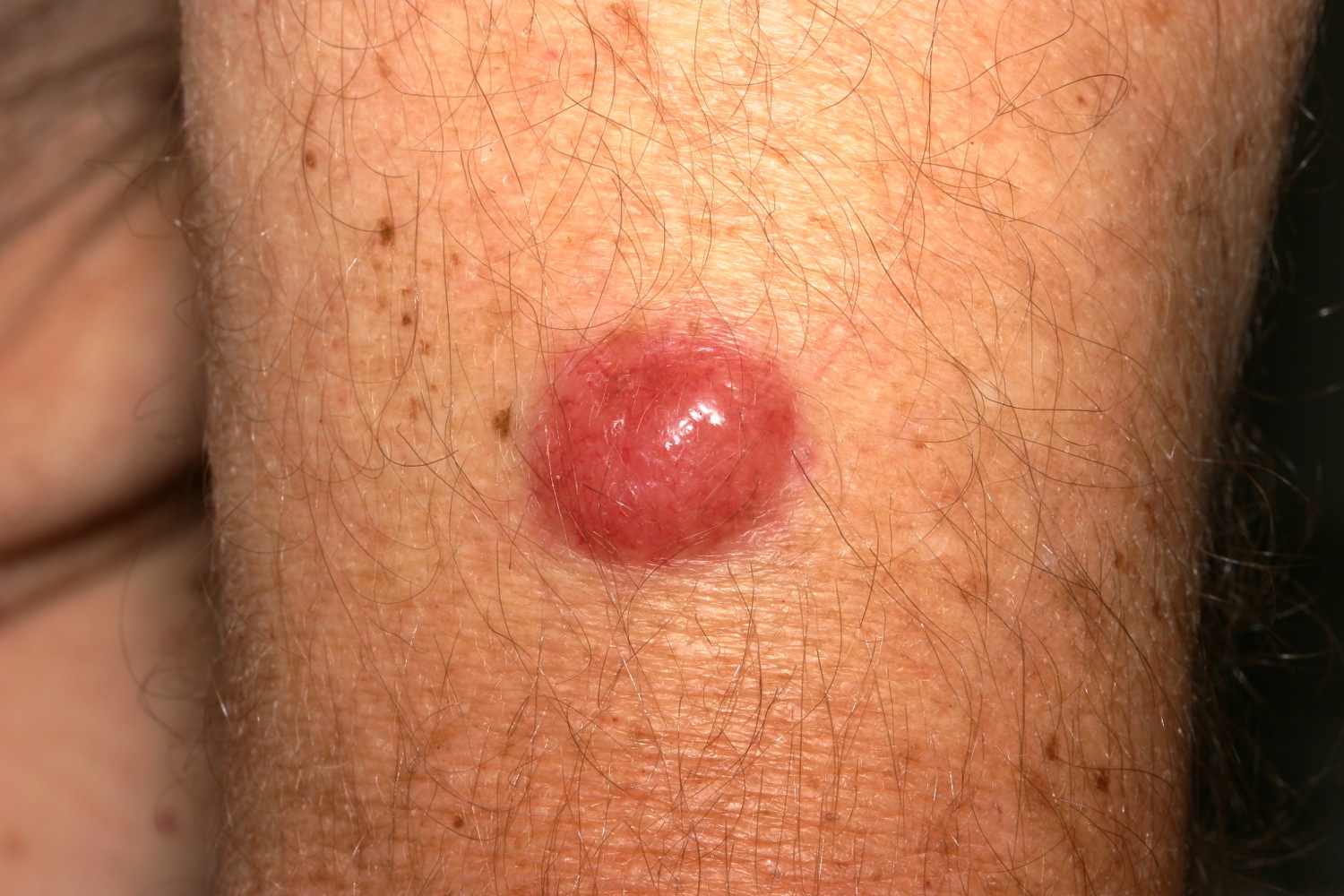
MERKEL CELL CARCINOMA
Merkel Cell Carcinoma (MCC) is a rare and aggressive form of skin cancer that affects the Merkel cells, which are located near nerve endings and help with touch. It's also known as a neuroendocrine tumor (NET) of the skin. MCC is associated with the Merkel cell polyomavirus and usually develops on sun-exposed skin. It affects about 3 in every million people. Symptoms include a single, painless, shiny bump that can be pink, red, or purple
- Even small primary tumors may have nodal metastasis.
- Sun exposed areas, older, white male.
- It is commonly seen in the elderly on the head, neck, and extremities and has a tendency for local, regional, and distant spreading.
- Its nondescript presentation sometimes delays diagnosis.
- MCC tend to be firm, non-tender and rapidly growing.
- The incidence appears to be rising.
Merkel Cell Polyomavirus
- MCP is found in about 80% of MCC. Twenty percent of patients with MCC do not harbor MCP and those Merkel cells are substantially more aggressive than those that are virus positive. For example, median overall survival was 3.3 years for virus-negative tumors compared with 4.6 years for virus-positive tumors in one study.
- Causality has not been proven.
- Seventy percent of the normal population has been exposed to and has antibodies to MCP.
- For serology test, see below.
Clinical
A solitary, red-purple or violaceous, shiny, dome-shaped nodule or plaque on the face, head or neck of an elderly person is characteristic. Approximately 94% of patients are white with an average age at presentation of 72 years. The diagnosis is often not entertained before the pathology is back as the red, nodular growth may be mistaken for a benign cyst, BCC, SCC or amelanotic melanoma.
Paraneoplastic Syndromes Associated with MCC
Paraneoplastic syndromes may be associated with neuroendocrine cancers and MCC is no exception. Reported abnormalities include:
- Cerebellar degeneration (difficulty coordinating movements, swallowing and slurring of speech)
- Lambert-Eaton myasthenia syndrome (tingling of the hands and legs, proximal muscle weakness,� loss of motor strength)
- Hyponatremia
Workup
Workup and treatment is usually done by a specialist experienced with MCC. Workup may include history and physical with complete skin exam and special attention to lymph node and liver/spleen palpation, and various advanced imaging modalities (e.g., PET/CT) to assess for metastatic disease. Blood work is usually done.
Treatment, Brief Overview
- Surgical excision, e.g., 1-2 cm margins with primary closure and no flaps or grafts as they can delay radiation therapy which is critically important for almost every patient.
- Sentinel node biopsy.
- MCC is very radiosensitive and local XRT should be done in nearly every patient.
- Can follow for recurrence with Merkel Polyomavirus Serology Test if antibody-positive. Controversial, however.
Therapy should be carried out by a specialist.
RegionalDerm
Homepage | Who is Dr. White? | Privacy Policy | FAQs | Use of Images | Contact Dr. White
It is not the intention of RegionalDerm.com to provide specific medical advice, diagnosis or treatment. RegionalDerm.com only intends to provide users with information regarding various medical conditions for educational purposes and will not provide specific medical advice. Information on RegionalDerm.com is not intended as a substitute for seeking medical treatment and you should always seek the advice of a qualified healthcare provider for diagnosis and for answers to your individual questions. Information contained on RegionalDerm.com should never cause you to disregard professional medical advice or delay seeking treatment. If you live in the United States and believe you are having a medical emergency call 911 immediately.
